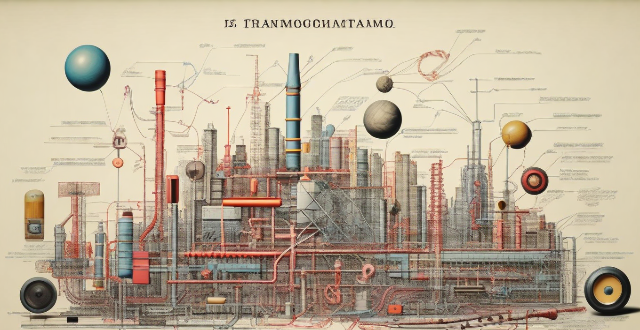AI is transforming creative industries, enhancing and augmenting the creative process. It influences music production, art generation, and writing by offering tools for composition, sound design, mixing, generative art, content generation, and real-time translation. AI also assists in music recommendation, art analysis, and proofreading. Despite its potential, AI should complement human creativity, as art's essence lies in unique perspectives and emotions that only humans can provide.

The Influence of AI on Creative Industries
Artificial Intelligence (AI) is rapidly transforming various sectors, including creative industries like music, art, and writing. While some argue that AI could replace human creativity, others believe it can enhance and augment the creative process. Here are some ways AI might influence these industries:
Music Industry
Composition and Production
- Algorithmic Composition: AI can generate original compositions using machine learning algorithms that analyze and replicate musical styles.
- Sound Design: AI tools can create unique sounds and effects, expanding the sonic palette for producers.
- Mixing and Mastering: AI-driven software can automate the mixing and mastering process, potentially improving efficiency and consistency.
Music Recommendation and Discovery
- Personalized Playlists: AI algorithms power platforms like Spotify and Netflix to suggest personalized playlists based on user preferences.
- Music Discovery: AI can help users discover new artists and genres by analyzing listening patterns and making recommendations.
Art Industry
Generative Art
- AI Art Generators: Tools like DeepDream Generator use neural networks to produce surreal and abstract images.
- Style Transfer: AI can apply the style of one artist to another's work, creating unique pieces that blend different aesthetics.
Art Analysis and Conservation
- Conservation: AI can assist in the restoration of damaged artworks by predicting missing parts or faded colors.
- Historical Context: AI can provide insights into an artwork's historical context by analyzing its composition and comparing it to other works from the same period.
Writing Industry
Content Generation
- Automated Writing: AI can generate news articles, sports reports, and financial analysis with minimal human input.
- Storytelling: AI-powered tools can assist writers in developing plotlines, character arcs, and dialogue.
Editing and Proofreading
- Grammar Checkers: Advanced grammar checkers powered by AI can catch errors and suggest improvements beyond traditional spellcheckers.
- Style Guides: AI can enforce consistent brand voices and style guidelines across large bodies of text.
Translation and Localization
- Real-time Translation: AI can translate written content in real-time, facilitating international collaboration among writers.
- Cultural Adaptation: AI can adapt content for different cultures while maintaining the original message and intent.
In conclusion, AI has the potential to revolutionize creative industries by introducing new tools and methods for creation, analysis, and distribution. However, it is essential to recognize that AI should complement rather than replace human creativity, as the essence of art lies in the unique perspectives and emotions that only humans can bring to their work.